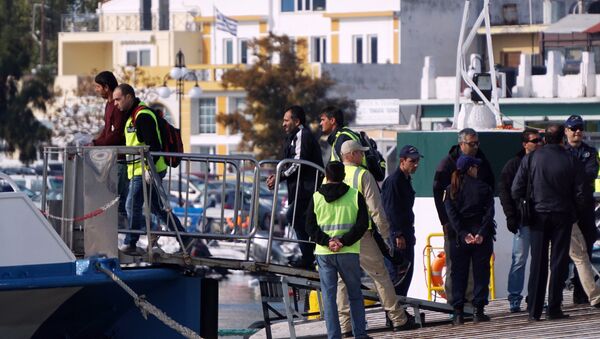According to the Greek daily, the protest began at 10:30 local time (09:30 GMT) and police used tear gas to disperse migrants who built a cordon on the main road between Moria and Mitilini, the island's capital.
Migrants were protesting against squalid living conditions in camps that are stretched beyond capacity. According to the Human Rights Watch advocacy group, 16,800 people were living in the Moria Reception and Identification Centre as of 2 December. The camp has capacity for less than 3,000 people.
Lesbos: manifestação termina em confronto entre polícia grega e migrantes https://t.co/OikUIaE4Iw pic.twitter.com/rHcJSZo5t0
— RFI Brasil (@RFI_Br) February 3, 2020
Demonstrators also demanded that their asylum cases be expedited.
Λέσβος πρόσφυγες: Πορεία χιλιάδων από το ΚΥΤ Μόριας προς την πόληhttps://t.co/qSGjHqVLFS pic.twitter.com/PeG89jCwkD
— i247 News (@I247gr) February 3, 2020
On Tuesday, the European Asylum Support Office announced a deal with the Greek government to double staffing numbers in the country in order to speed up case processing.
Λέσβος: Επεισόδια σε πορεία προσφύγων – Υποχώρησε η ένταση (video) https://t.co/hjgxpEHktJ pic.twitter.com/UgAR14TmFG
— ASTRATV (@ASTRATV1) February 3, 2020
According to a statistical report compiled by the EU statistical office Eurostat, there were 90,200 pending asylum cases filed in Greece that were still waiting to be processed as of September 2019. Only Germany and Spain have a higher number of unresolved asylum cases.
Greece has become a hub of refugee and asylum seeker activity in recent years. According to data compiled by the UN High Commissioner for Refugees, over a million people have arrived in Greece claiming asylum in the European Union since 2014.


